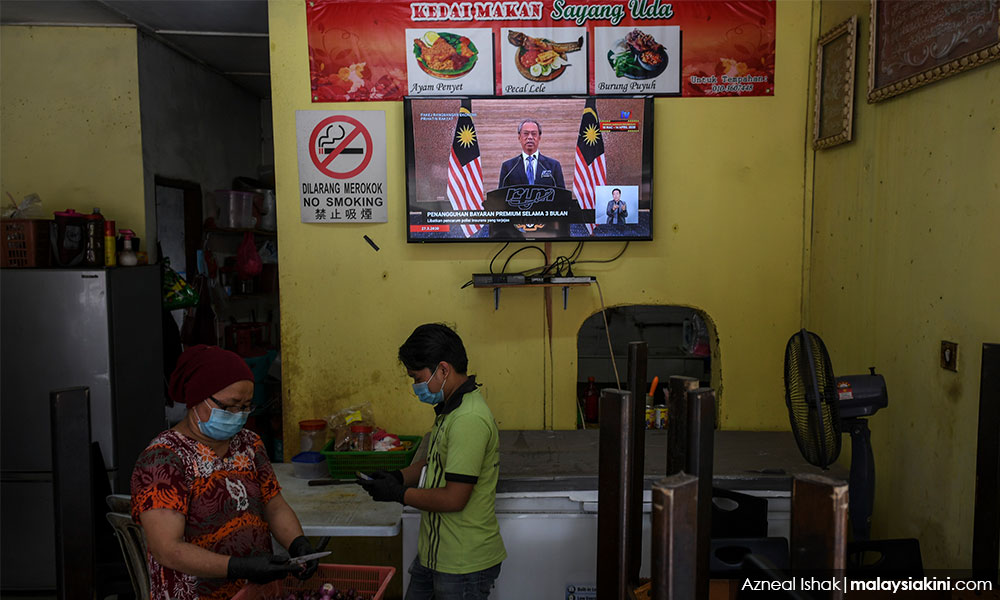
Published by New Straits Times & The Star, image from New Straits Times.
AFTER being hit by Covid-19, concerns on the sufficiency of social protection, particularly retirement savings, for the informal sector workers have been raised. Those who are affected include the self-employed, domestic workers and temporary or part-time workers.
In Malaysia, employment in the informal sector makes up 9.4 per cent of the total. With the exception of civil servants who are entitled to their own pension scheme, the existing social protection programmes that focus on retirement savings or could help the non-public sector workers to save include the Employees Provident Fund (EPF) retirement scheme and cash transfer programme, Bantuan Sara Hidup (BSH), for those earning RM4,000 and below.
However, the latest findings by the World Bank revealed that savings are low among the low-income group (B40) and women based on EPF contributors’ data, which show that there are only 7.6 million active members.
Due to low average contribution per worker, more than half of workers aged 54 have saving balances under RM150,000 and almost three quarters have under RM250,000. Looking at the share of the labour force, 48.9 per cent are EPF contributors, 11.9 per cent are civil servants and from the armed forces, while 39.2 per cent are without any contributory retirement savings.
Obviously a portion of this 39.2 per cent share are those in the informal sector. These appear worrying as EPF has mentioned that 70 per cent of its members who withdraw their funds at the age of 55 use up their savings in less than 10 years after retirement.
In June, EPF chief executive officer Tunku Alizakri Alias stated that the majority of the withdrawal applications from i-Lestari Account 2 came from the B40 group and noted his worries that some of the members exhausted their Account 2 savings just after two months.
With low and uncertain incomes, meagre savings caused by this crisis and increased life expectancy, what is left ahead for Malaysians? Despite the introduction of the Prihatin and Penjana packages, a forward-looking approach is seriously needed to ensure a sustainable social protection for the rakyat.
Firstly, it requires a formulation of a National Social Protection Policy as an umbrella policy framework that is in line with the guiding principles of the Shared Prosperity Vision 2030. To do this, a national coordinating council needs to be established.
Hence, the reactivation of the Malaysia Social Protection Council that was set up in 2016, is welcomed. Next, special attention should be directed toward the enhancement of retirement savings as it is one of the basic components of a social safety net in the long term.
This is specially for the 39.2 per cent who are without contributory retirement savings as well as for the low-income earners who would be left out with little or no savings due to the small contributions. One ideal way is to consider an “auto-enrolment” mechanism for the self-employed with a fixed minimum amount of annual salary or once the person starts working, as what has been implemented in the United Kingdom and New Zealand.
In Malaysia, a self-employed retirement scheme has already been initiated by EPF, known as i-Saraan, for registered members aged below 55. In the scheme, members can contribute any time and any amount, and withdrawals are allowed. This platform can be utilised further to encourage contributory savings.
One of the factors that hinder people from joining retirement schemes is the lack of knowledge and given its long-term nature, some people might not realise the importance of saving for the future. Studies have shown financial education can play a role in raising awareness of pension schemes among informal workers.
For instance, the United Kingdom launched a specific campaign in 2006 to assist the self-employed to understand its pension system and arrangements available to them. Social protection is a very broad subject and retirement savings are only one part of it.
Thus, complementary measures to achieve the main objective, such as national health insurance, and targeted and deepened social assistance, are also required.
Nur Sofea Hasmira Azahar is Research Analyst at EMIR Research, an independent think tank focused on strategic policy recommendations based on rigorous research.

